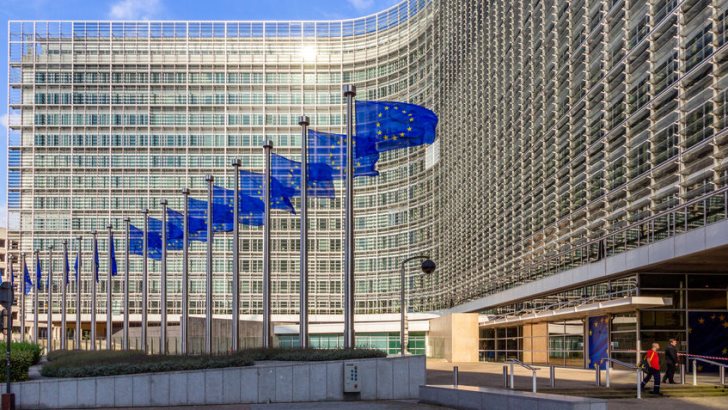
The summit talks in Brussels finally concluded yesterday with the signing of a landmark deal amounting to a total of 750 billion euros, that are to be redistributed between the struggling economies of the bloc. European leaders have been leading rocky negotiations since last week over the proposal for a massive stimulus package to offset the impact of the coronavirus fallout, and to ensure sustained economic recovery from the crisis.
Germany and France had been advocating for a bundle of 500 billion euros that were to be comprised mostly of grants, which was seen as an absolute necessity by Europe's poorer southern economies. Meanwhile, the opposition was comprised of the fiscally stringent northern states, chiefly the Netherlands, Austria, Sweden, and Denmark. The frugal four were contesting against the proposed size of the grants and were also insisting on tighter control over the redistribution and appropriation of the funds.
The Dutch Prime Minister Mark Rutte, who was seen as the leader of the opposition and a key antagonist to Emmanuel Macron and Angela Merkel in Brussels, proposed the 500 billion grants package to be reduced to 350 threat on the threat of breaking the negotiations. Eventually, the two sides came to terms with each other, and yesterday agreed to appropriate 390 billion euros from the 750 billion envelope in the form of grants. The rest of the sum is comprised of low-interest loans.
The big success of the summit was that the 27 members found a way to issue common European debt for the first time in the bloc's history, which is owing to the unprecedented nature of the coronavirus crisis. Even though nobody managed to come completely on top during the complicated negotiations, both sides claimed victory at the end. One question remains though, and that is what would happen with the political and economic welfare of the bloc from here on out.
The gaping divide between the two camps is stemming from the deeply-rooted differences in the way policymaking is conducted in the fiscally responsible north and the more fiscally irresponsible south. Countries such as Italy and Spain were running huge government debt even before the market turmoil of early-2020, which is what concerned Rutte and his camp.
As far as the frugal four were concerned, dumping more debt into an inherently faulty model would jeopardise the economic stability of the entire bloc. That is why the opposition demanded a reduction in the size of the initially proposed 500 billion, in addition to the implementation of stringent control on the allocated funds.
As far as Europe's southern countries were concerned, however, the underlying issue is one of political solidarity. Spain and Italy were hit particularly hard by the epidemic, both in terms of human and economic costs. The crisis exposed the weak links of the EU's political landscape and raised the stakes for the 27 Ministers. They knew that failure assist the struggling economies at present could have threatened the political integrity of the entire union. To Giuseppe Conte, Italy's Prime Minister, the fiscal relief represents something more than a typical bailout package. It is also a tool for achieving political integration by virtue of strengthening the ties between the north and the south.
Yesterday's reconciliation in Brussels means different things to the different sides of the argument. To Macron and Merkel, their victory is encapsulated by the fact that they managed to convince EU's member states to agree to this relief package together, which is expected not only to take Europe out of the crisis but also to solidify the political unity of the bloc.
To Rutte and his partners, their success is encapsulated by the safety nets that were included in the deal. The frugal four ensured that the EU does not view the 750 billion as an end in itself. Rather, they managed to underline the potential risks that stem from the misappropriation of the funds. That is how it was ensured that the funds would be invested in a mutually satisfactory way.
According to people familiar with the matter, at least a third of the 750 billion would be directed towards the fight against climate change. That way, the funds are going to be invested in a sustainable way that ensures profound and long-lasting benefits. Moreover, the risks of default by means of inflating Europe's debt are also diminished, since the capital is not going to be simply dumped into the economic cycle without a second consideration. Instead, the European Ministers desire to ensure payoff in the long run.
Investors have already recognised these intentions and are starting to weigh in on the likely outcomes from the relief package in the foreseeable future. Improved investors' optimism strengthened the euro during yesterday's trading session, and some have even praised the new role of the currency as a safe-haven during these turbulent times.
The ascent of the euro is likely to persist in the near term because unlike the highly speculative bullish run of the stock market, the hike of the euro is backed up by EU's decisive actions. Yesterday's deal, as was established earlier, is likely to have profound and long-lasting consequences for the economies of the union, which means that the rally of the single currency is grounded on solid footing.




















